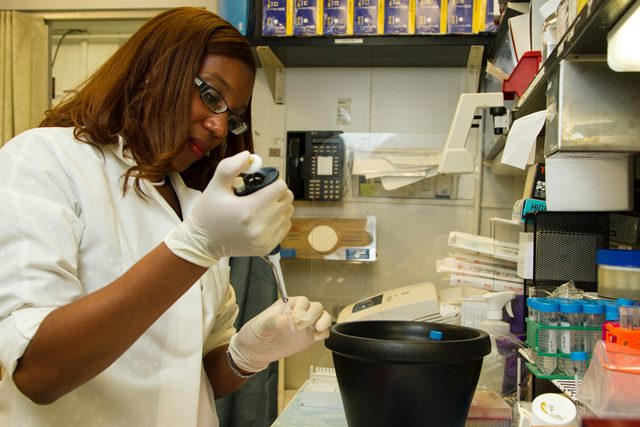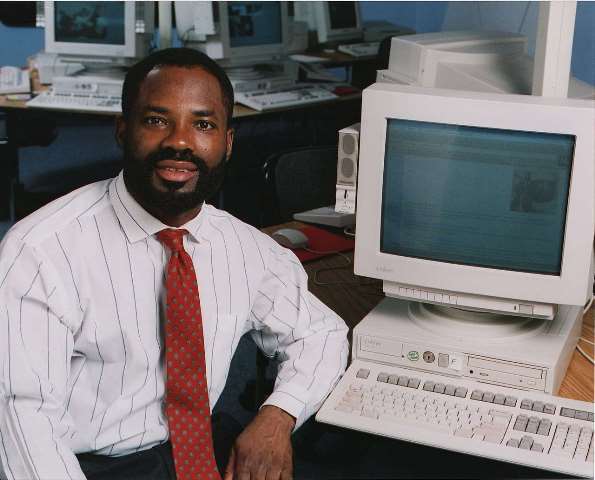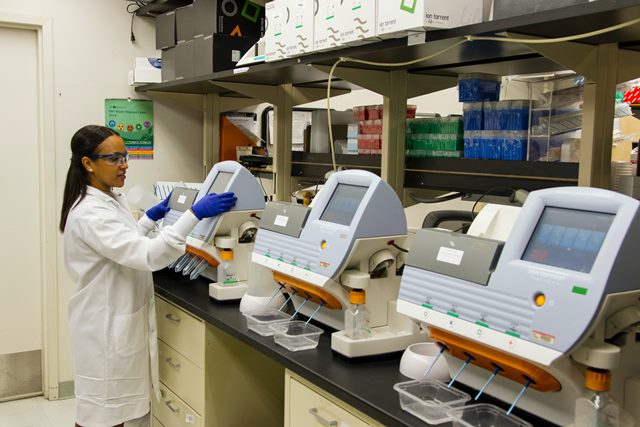For too long, the contributions of African scientists have been overlooked and underestimated. From groundbreaking discoveries to innovative solutions to pressing global challenges, African scientists have made significant contributions to the world of science and beyond.
However, many of these individuals remain unknown to the world despite their achievements. In this article, we will spotlight some of the many unknown African scientists whose work has impacted our world.
Whether in physics or medicine, these scientists have left a mark on their fields and the world, and it’s time we acknowledge their contributions.

Contributions to Science
As earlier stated, Africa is home to many brilliant scientists whose contributions have gone unnoticed by the wider world. These individuals have made significant contributions to science and beyond. Yet, their names are not as widely recognized as they should be.
Here are some examples of unknown African scientists and their contributions to their respective fields:
Philip Emeagwali – Nigeria
Although Philip Emeagwali isn’t exactly unknown to some people, his pedigree should be on the same level as the greatest scientists ever to live. Unfortunately, that’s not the case. Philip Emeagwali is a Nigerian computer scientist and mathematician widely regarded as the “father of the internet.”

Innovative Tech Solutions, Tailored for You
Our leading tech firm crafts custom software, web & mobile apps, designed with your unique needs in mind. Elevate your business with cutting-edge solutions no one else can offer.
Start NowIn the 1980s, Emeagwali developed a new way of processing data using multiple processors. This significantly increased the speed of computers. His work laid the foundation for modern computing and made possible many of the technologies we use today, such as online shopping, email, and social media.
Beatrice Ndiaye – Senegal
Beatrice Ndiaye is a Senegalese physicist who has made significant contributions to the field of renewable energy.
She developed a new type of solar panel that is more efficient than traditional panels and can be manufactured at a lower cost. Her work can potentially revolutionize how we generate and use energy, particularly in developing countries where access to electricity is limited.
Read: The Top 10 Most Influential African Leaders
Salim Abdool Karim – South Africa
Salim Abdool Karim is a South African epidemiologist who has made significant contributions to the fight against HIV/AIDS.

Karim developed a new approach to preventing the transmission of HIV that involves using antiretroviral drugs to reduce the risk of infection. His work has been instrumental in reducing the spread of HIV in South Africa and other parts of the world.
Mohamed Hassan – Sudan
Mohamed Hassan is a Sudanese mathematician who has contributed immensely to number theory. Hassan developed a new way of solving equations using modular forms, which has implications for cryptography and computer security.
His work has been recognized with numerous awards, including the prestigious Fields Medal, often called the “Nobel Prize of mathematics.”
Rosalind Kainyah – Ghana
Rosalind Kainyah is a Ghanaian environmental scientist who has been a beam of light in the field of sustainability. As one of the best African scientists, she is the founder and CEO of Kina Advisory. The organization is a consultancy firm that provides advisory services on sustainable investment in Africa.
Seamless API Connectivity for Next-Level Integration
Unlock limitless possibilities by connecting your systems with a custom API built to perform flawlessly. Stand apart with our solutions that others simply can’t offer.
Get Started
Kainyah has been recognized as one of the most influential women in business and has received numerous awards for her work in sustainability.
Joseph Mtume – Tanzania
Joseph Mtume is a Tanzanian chemist that has contributed to the growth of green chemistry. He developed a new way of producing biodiesel fuel from renewable sources, potentially reducing the world’s reliance on fossil fuels.
His work has been recognized with several awards, including the TWAS Prize for Chemical Sciences.
Anne Mwangi – Kenya
Anne Mwangi is a Kenyan microbiologist with a focus on infectious diseases. She developed a new way of testing for tuberculosis using a simple, low-cost device that can be used in remote areas with limited resources.
Her work can potentially improve the diagnosis and treatment of tuberculosis, one of the leading causes of death in developing countries.
Read: 7 Female Warriors Who Led African Armies and Empires
Mohamed H.A. Hassanien – Egypt
Mohamed H.A. Hassanien is an Egyptian computer scientist who has contributed to improving artificial intelligence (AI).
He developed a new way of analyzing data using fuzzy logic, which has applications in various fields, from finance to healthcare. His work has been recognized with several awards, including the IEEE Computational Intelligence Society Outstanding Paper Award.
Jennifer Thomson – South Africa
Jennifer Thomson is a South African geneticist who has made significant contributions to the biotechnology field. She developed a new way of producing genetically modified crops that are resistant to pests and diseases.
Transform Business with Custom CRM & ERP Solutions
Elevate your operations with a CRM or ERP tailored for you. Let’s build the perfect solution that others can't replicate—crafted to match your business's needs like no other.
Get Started
This has the potential to improve food security in developing countries. Her work has been recognized with several awards, including the L’Oréal-UNESCO Award for Women in Science.
These are only a few examples of the many unknown African scientists whose work has impacted the world. Their achievements testify to the ingenuity and resilience of African scientists, who continue to push the boundaries of knowledge and innovation despite the challenges they face.
It is time we recognize their contributions and give them the credit they deserve. By doing so, we can inspire future generations of African scientists and create a more diverse and inclusive scientific community.
Challenges Faced by African Scientists
Unknown African scientists face various challenges. Some of these difficulties can hinder their ability to conduct research, gain recognition, and make meaningful contributions to their fields.

Here are some of the key challenges they face:
- Lack of funding: African scientists often struggle to secure funding for their research. This can make it difficult to conduct large-scale studies, purchase necessary equipment, and hire research assistants.
- Limited resources: Many African countries have limited resources for research and development. This means they have to work with outdated equipment or have limited access to the latest technologies.
- Brain drain: Many talented African scientists leave the continent to pursue opportunities abroad, which can deprive African countries of their expertise and innovation.
- Lack of recognition: African scientists often do not receive the same level of recognition as their peers in other parts of the world. This can make securing funding, attracting collaborators, and publishing their work in high-profile journals difficult.
- Political instability: Political instability in some African countries can make it difficult for scientists to conduct research and collaborate with colleagues. This can lead to delays in research, difficulties in obtaining visas, and other logistical challenges.
- Gender and racial discrimination: Women and people of color may face additional barriers to success in the scientific community, including prejudice and bias. This can make it difficult to gain recognition, secure funding, and advance in their careers.
Despite these challenges, many African scientists continue to make essential contributions to their fields. They work tirelessly to overcome these obstacles and make a difference in their communities and the world.
It is important for the global scientific community to recognize and support their work, and to work towards creating a more equitable and inclusive scientific community that values and celebrates diversity.
Importance of Recognizing the Contributions of African Scientists
Recognizing the contributions of African scientists is not only a matter of fairness but also has significant implications for scientific progress and social justice.

Here are some reasons why it’s important to acknowledge their impact:
Tailored Tech Solutions to Drive Your Business Forward
Maximize your business potential with custom tech strategies. We deliver bespoke solutions that others can’t match, designed to solve your specific challenges with precision and impact.
Contact Us- Scientific progress: African scientists have made significant contributions to various fields, including medicine, environmental science, and engineering. Recognizing their achievements can help to advance scientific knowledge and improve our understanding of complex issues.
- Diversity and inclusivity: Acknowledging the contributions of African scientists can help to create a more diverse and inclusive scientific community. This can lead to new perspectives, ideas, and collaborations that can help to solve some of the world’s most pressing problems.
- Social justice: Recognizing the achievements of African scientists can help to promote social justice and equity. It can help to counteract the harmful stereotypes and biases that have historically marginalized scientists of color. And also promote a more accurate and positive portrayal of African scientists and their work.
- Inspiration for future generations: Recognizing the achievements of African scientists can inspire future generations of scientists and researchers. Especially those from underrepresented backgrounds. It can show them that they, too, can make meaningful contributions to science and that their work is valued and appreciated.
- International cooperation: Acknowledging African scientists’ contributions can help promote international cooperation and collaboration. It can help to break down barriers between different countries and cultures and promote mutual respect and understanding.
Ultimately, recognizing the contributions of African scientists is essential for promoting scientific progress, diversity and inclusivity, social justice, inspiration, and international cooperation.
By acknowledging the achievements of African scientists, we can help to create a more just and equitable scientific community and work towards a brighter future for all.
Before you go…
Hey, thank you for reading this blog to the end. I hope it was helpful. Let me tell you a little bit about Nicholas Idoko Technologies. We help businesses and companies build an online presence by developing web, mobile, desktop, and blockchain applications.
We also help aspiring software developers and programmers learn the skills they need to have a successful career. Take your first step to becoming a programming boss by joining our Learn To Code academy today!
Be sure to contact us if you need more information or have any questions! We are readily available.










